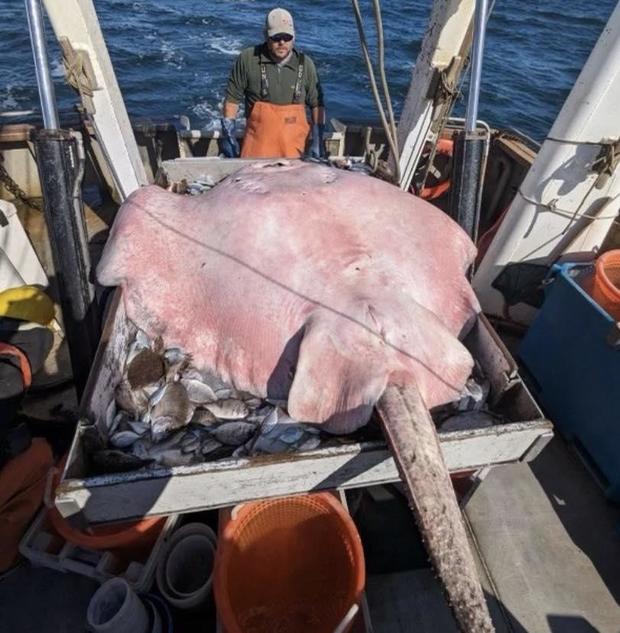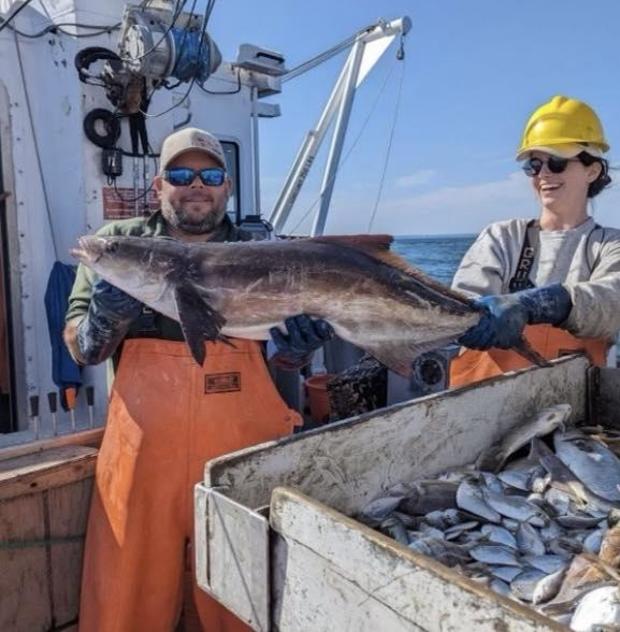400-pound stingray caught in Long Island Sound in "relatively rare" sighting
Connecticut Fish and Wildlife officials stumbled across a "relatively rare" sighting in the Long Island Sound this week: A massive stingray nearly the length of Travis Kelce, the Kansas City Chiefs tight end and Taylor Swift's rumored beau.
Officials said on Thursday that a survey crew was in the sound – which separates New York's Long Island and Connecticut – the day prior when they stumbled upon the sea creature. It was a "huge" roughtail stingray, they said, weighing an estimated 400 pounds. It was more than five feet wide and over six feet long, they added – the latter of which is just a few inches shy of the six-foot-five Kansas City footballer who has been making his own headlines in recent days after Swift attended one of his games.
"These gentle giants are found along the Atlantic coast from New England to Florida but are relatively rare in Long Island Sound," Connecticut Fish and Wildlife said on Facebook.
Roughtail stingrays do have venomous spines that could be deadly if used, but officials reminded that the animals "are not aggressive, and don't frequent nearshore waters where people wade and swim."
A photo of the stingray shows it laying belly-up on a large haul of fish.
"Rather than attempt to roll the animal over, our crew quickly took some measurements and immediately returned the ray to the water to watch it swim away alive and well," officials said. "... Our Long Island Sound Trawl Survey crew never knows what they might see on a given day out on the Sound – yesterday was a stand-out example."
And that wasn't the only "notable catch" the team had.
The same day they caught the stingray, officials said they also caught a cobia, a "strong, aggressive predator," according to the National Oceanic and Atmospheric Administration, that is often confused with sharks but that eats fish, squid and crustaceans. These fish can grow to be more than six feet long and 150 pounds, Connecticut officials said, and while they are dispersed throughout the Atlantic, they "have historically been most abundant south of Chesapeake bay."
"However, as climate change has caused New England waters to warm, this species has become an increasingly common visitor to Long Island Sound," officials said. "The Long Island Sound Trawl Survey is one of the primary tools...to document the 'new normal' that is rapidly being created right here in [Connecticut] by climate change."





